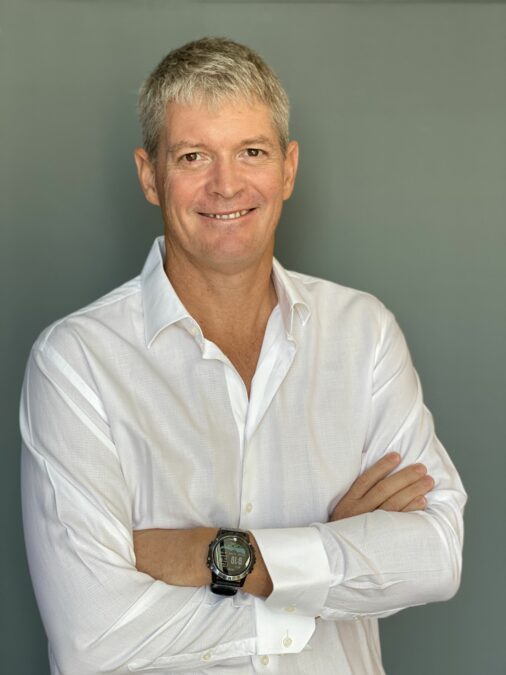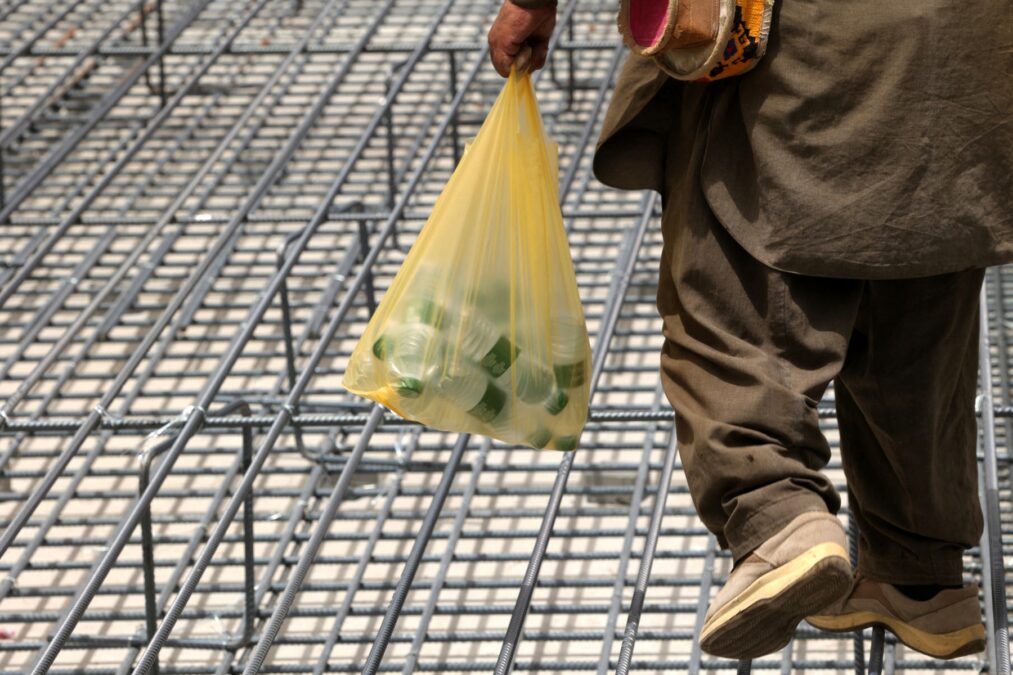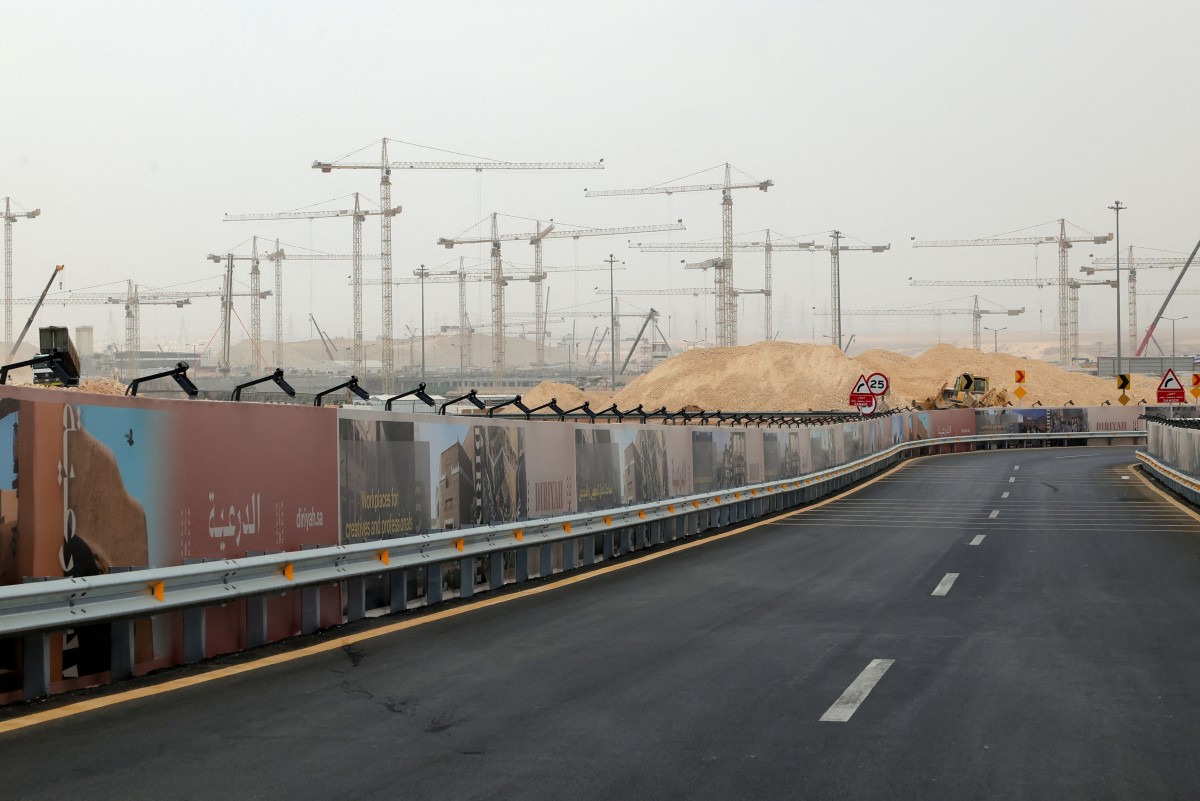Riyadh, Saudi Arabia – Saudi Arabia is experiencing transformative growth, primarily driven by its ambitious Vision 2030 economic diversification plan which aims to reduce the kingdom’s dependence on oil and propel it towards a knowledge-based economy.
One of the most visible manifestations of this transformation is the booming construction industry, abuzz with activity on giga-projects like NEOM and the Red Sea Project.
In an interview with TRENDS, Barry Lewis, CEO at ALEC, a leading regional construction firm, delves into the heart of this exciting phenomenon. He talks at length about the factors propelling Saudi Arabia’s construction surge, the diverse project landscape, and the long-term benefits for the nation’s economy and society. Lewis describes the specific types of construction projects driving the boom, from revolutionary urban living concepts to world-class tourism destinations.
Excerpts:
Q: What is the current state of Saudi Arabia’s construction industry and the factors contributing to its rapid growth?
Saudi Arabia has garnered an international reputation as a nation on the rise. Through its economic diversification program, Vision 2030, the Kingdom has branched out into other arenas. Its ambitions are evident in its ability to draw some of the world’s top sports talent and Riyadh’s successful bid to host World Expo 2030. The most eye-catching developments are occurring in its construction industry. The Red Sea Project, Diriyah Gate, Qiddiya Entertainment City, and NEOM are potential legends in the making, and they have thrust the country into the global limelight.
The government is the driving force behind many of these success stories. The country leads its regional peers in construction growth and market share. Of the US$1.1 trillion in its unawarded projects pipeline, some 70 percent is in the construction sector, already a US$70-billion market and projected to reach more than US$91 billion by 2029.
Such government backing has fueled a boom that has attracted eager participation from regional and international industry leaders. ALEC is prime among these, and we have been investing in expanding all our business lines—including construction, MEP, fit-out, energy and data-center solutions, and heavy equipment rentals—into the Kingdom.
Q: Can you elaborate on the specific types of construction projects contributing to this boom?
A diverse array of construction projects is being unveiled in the Kingdom, covering a broad spectrum of categories — from revolutionary paradigms in urban living and sprawling industrial complexes to world-class developments that aim to be the epitome of luxury hospitality. Of course, while Saudi Arabia’s giga-projects attract all the media attention, the government is also overseeing rapid urbanization that has come about through authorities’ encouragement of foreign businesses to open offices in the country. The resultant inflow of talent has called for a ramp-up of infrastructure and residential construction.

In parallel, the government has changed laws to boost the tourism sector. Projects like the luxury island Sindalah have spun off many new initiatives, from luxury hotels to theme parks.
Q: What are the anticipated long-term benefits of this construction boom for the Saudi Arabian economy and society?
Apart from the immediate benefits — which include elevating the country’s standing on the world stage and attracting the best and brightest talent to the Kingdom — the government’s construction investments are helping boost core sectors of the economy to unprecedented new heights. For example, consider the tourism sector alone. One set of estimates shows the country’s tourism industry is worth almost US$75 billion this year, rising to over US$86 billion in 2025. The World Travel & Tourism Council expects Saudi Arabia’s employment of T&T professionals to double in the ten years from 2022 to 2032. Sectors like manufacturing, finance, retail, aviation, and many more can similarly be expected to benefit from the impressive momentum of the country’s construction industry.
Moreover, this trend cycle in construction is also creating more talent, which aligns with the Kingdom’s goal of creating an onshore knowledge economy to support sustainable growth. The construction boom, combined with the government’s Saudization mandate, will lead to young Saudis working on world-firsts with international thought leaders. This prolonged exposure to expertise will eventually lead to a homegrown talent pool that could be ripe for export in the future.
Q: How are Saudi Arabia’s ambitious infrastructure projects, such as NEOM, the Red Sea Project, and Qiddiya, shaping the landscape of the construction industry in the Kingdom?
NEOM has made waves for its revolutionary take on connectivity infrastructure, innovative city features, and sustainability. The Red Sea Project concentrates on luxury tourism, balances opulent fit-outs with environmental conservation, and blends modern luxury with cultural heritage. Qiddiya, the world’s most extensive entertainment city, will unquestionably boast experiences that have never been seen.

Because NEOM, the Red Sea Project, Qiddiya, and others have shown ambition to set new benchmarks for their respective segments, they have also warranted utilizing new and advanced construction paradigms. For example, at ALEC, we are working on projects that leverage cutting-edge methodologies like modular construction, where units are built to world-class standards in controlled factory settings and then efficiently transported to remote sites for rapid and precise deployment. We are even pioneering the use of locally sourced sustainable materials such as recycled date palms as one of the alternatives to concrete.
With these projects serving as a proving ground for such breakthroughs, the landscape of the construction industry, both in the Kingdom and beyond its borders, stands to be transformed for the better. These projects offer an unprecedented opportunity to do things that have not been done before and develop expertise that can be applied to the most ambitious projects in the world.
Q: With Vision 2030 driving diversification and economic transformation in Saudi Arabia, how do you see the construction industry playing a pivotal role in achieving these goals?
Vision 2030 looms large in Saudi Arabia. Diversification and economic transformation have become everyday issues. They are part of short-term initiatives and long-term strategies in the public and private sectors.
Job creation is fundamental to economic transformation. The Kingdom’s giga-projects will only succeed if local talent is entrusted with driving them forward. Again, we see this cycle of creating a knowledge economy.
Q: What challenges and opportunities may regional and global construction firms encounter when operating in the Saudi Arabian market?
When regional and global construction firms come to Saudi Arabia to capitalize on its many opportunities, they should understand that to be successful in Saudi Arabia, they must invest in the Kingdom for the Kingdom. They should arrive with the committed goal of being in it for the long haul, not just a single project.
For example, at ALEC, our “long-haul commitment” is demonstrated in our Saudi talent development. We have implemented cadet programs for early-stage recruitment and training of young professionals across the country and are currently in talks with educational institutions to further this initiative.
At ALEC, our ongoing success in the Kingdom results from the fact that we do not measure our successes in Saudi Arabia by revenues alone but rather by the positive impact we have on the clients and communities we serve. We are committed to enriching the countries in which we operate, and through our efforts, we aim to elevate the construction sector in Saudi Arabia to genuinely world-class levels, thereby supporting the local economy and boosting everything from business and manufacturing to travel and tourism.
Q: With sustainability and innovation becoming increasingly important in construction projects worldwide, how does Saudi Arabia’s construction industry embrace these principles, and what impact do you foresee on future developments?
In the wake of COP27 and COP28, held in Egypt and the UAE, respectively, sustainability has been on every business leader’s mind. The regional construction industry has made strides in building methods to accommodate the need for change. This prioritization of sustainability is reflected in many of the Kingdom’s large-scale projects, which have championed sustainable materials, cutting-edge construction techniques, and prototyping in virtual spaces.
The initiatives are helping to reduce projects’ carbon footprints and move the industry forward. With the built environment responsible for an estimated 40 percent of global greenhouse gas emissions, these paradigms pioneered in Saudi Arabia will have immense value to projects worldwide.
Q: How do you anticipate the recent geopolitical developments and economic reforms in Saudi Arabia influencing the trajectory of the construction industry and investment landscape?
Recent economic reforms in Saudi Arabia are acting as a catalyst for monumental change in the construction industry and investment landscape. With the clear vision of Saudi leadership to elevate the country’s global recognition, substantial investments are being directed towards infrastructure and development projects. The entry of top international players into the market signifies early-stage successes and points towards a robust upward trajectory.
Q: What do you see as the long-term outlook for Saudi Arabia’s construction industry, and how will it continue to attract significant investments from leading regional and global firms in the coming years?
The outlook for the next five years in the national sector is highly positive, and I anticipate even more significant momentum as 2030 approaches. The government is expected to continue implementing regulations that favor firms that invest sustainably and for the long term in the country.
Success has a tradition of fueling success. Saudi Arabia can look forward to great things as its talent pool grows and it begins to export its expertise.








